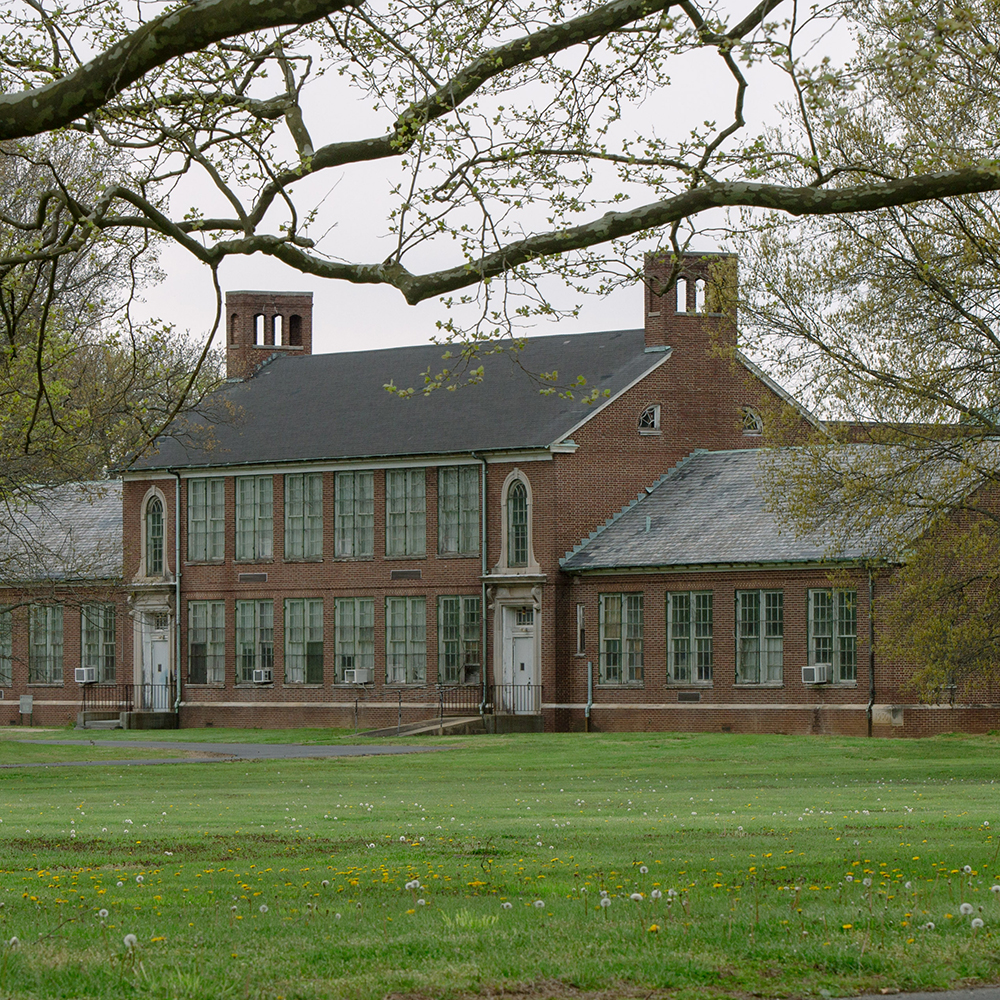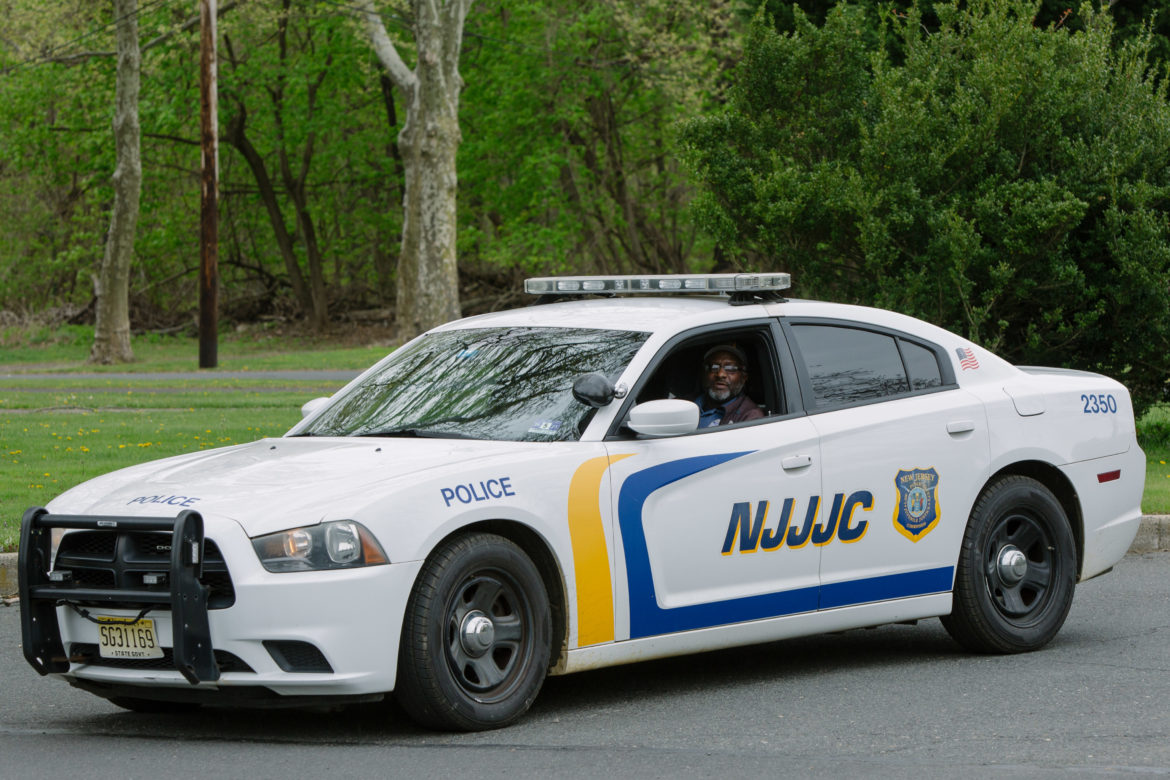On July 11, 2019, New Jersey Gov. Phil Murphy used the power of his pen to seize a unique political opportunity: putting his signature on one of the most ground-breaking laws in the country limiting the use of solitary confinement for juveniles.
It was a triumph for the juvenile justice advocates and formerly incarcerated people, many of whom had counted their days in isolated cells. They had showed up at the state’s legislative sessions wearing T-shirts saying things like “Solitary Confinement = Torture” to pave the way for the bill to pass.
 “I am proud to stand together with New Jersey’s criminal justice reform advocates and legislators to advance a humane correctional system," Murphy said in a statement on the day he signed the bill.
“I am proud to stand together with New Jersey’s criminal justice reform advocates and legislators to advance a humane correctional system," Murphy said in a statement on the day he signed the bill.
The executive director of the American Civil Liberties Union of New Jersey, Amol Sinha, called the law the "strongest legislation restricting solitary in the nation,” and a host of politicians who called the practice inhumane and damaging to youths and other vulnerable populations hailed it as a victory.
None of them could have imagined that, just nine months later, an unknown deadly virus would turn parts of the country into a surreal apocalyptic tale, with dead bodies piling up in makeshift morgues, scores of infected people taking up every inch of overcrowded hospitals in hopes of a ventilator and a mass quarantine turning once bustling streets into eerie desolation.
Medical isolation or solitary?
The global COVID-19 pandemic is now threatening to undo the gains of a hard-fought battle aimed at making solitary confinement for youth a thing of the past.
With the plague now creeping into prisons and jails across the state, juveniles in detention who test positive for the new coronavirus risk being placed in isolation indefinitely, throwing the new law, set to go into effect on Aug. 1, into uncertainty.

New Jersey Institute for Social Justice
Retha Onitiri
Retha Onitiri, the community engagement director for New Jersey Institute for Social Justice, an advocacy group calling for justice reforms, said they and other groups have requested official permission to visit youth facilities to see how they are responding to the epidemic and whether youth are held in solitary confinement. So far they have been denied access.
“We really want to suit up, mask up, go in to see what’s going on,” Onitiri said. "We don’t know if anybody is being quarantined, and if they’re being quarantined, are they using solitary confinement?”
Juveniles in the state can end up on different paths once they’ve entered the justice system. If they are convicted or plead guilty to crimes, courts can sentence them to either serve time in adult prisons (run by the state corrections department) or to juvenile facilities managed by the Juvenile Justice Commission (a separate agency under the purview of the New Jersey Attorney General).
While Onitiri said solitary confinement is “against the law” in New Jersey, the 2019 law limiting solitary confinement doesn’t apply to youths in JJC custody. It applies only to county jails and facilities run by the Department of Corrections (NJDOC). A 2015 law already limited the use of solitary confinement for youth in JJC custody to no more than five consecutive days for inmates age 18 or older.
But for inmates age 20 and below currently serving time in adult state prisons — they are roughly 2% of the total prison population — the risk for mandatory isolation is increasingly real now that the COVID-19 pandemic has spread into prisons.
Data about infections closely held
As of Monday night, 29 inmates in NJDOC custody had died as a result of COVID-19 infections; 145 had tested positive for the illness and 22 more were awaiting test results. About 495 corrections department employees had contracted the virus, according to the agency’s website, which provides daily updates.
Onitiri said the voice of juveniles detained in JJC facilities is getting lost in restrictions prompted by the emergency, and by red tape. The state suspended visits to all state prisons and halfway houses on March 16. Information about COVID-19 infections has been heavily controlled since.
“We are frantically reaching out and trying to get parents and young people who are inside to give us a view,” Onitiri said.
So far, all those efforts have proven unsuccessful.
The prospect of using solitary confinement for medical reasons related to COVID-19 has deepened the concerns surrounding the practice, legal experts say.
“There is no doubt that even before this pandemic there were people in the New Jersey Department of Corrections who are in conditions of solitary confinement,” said Alexander Shalom, a senior attorney at the New Jersey chapter of the ACLU.
"We are concerned about their conditions. At the same time we are also mindful that it is not a pretextual medical issue. We know it’s contagious and we want to protect people’s lives and health to the max extent possible. We’re hoping jails can find ways to allow for some interpersonal interaction but also allow for social distancing.”
No specific time frame
Administrators at JJC facilities said they plan to isolate youths at the onset of typical COVID-19 symptoms, which include fever, dry cough and shortness of breath.

Chris Jones
A building on the Johnstown Campus sits across the street from the Juvenile Medium Security Facility in Bordentown, N.J. The Johnstown Campus provides education, training and rehabilitation for juveniles, and can house up to 262 young men and 52 young women.
“They will be put in isolation. They will be given a mask, one of those — what’s the name? — the N95. They will be quarantined until they see the nurse,” said Lawrence Gleason, the administrator in charge of Southern Residential Community Home, a 24-bed male juvenile facility in Egg Harbor City.
Gleason implied that the quarantining of a juvenile for medical reasons would work differently from solitary confinement, the practice of putting youths in isolation cells “when they break the rules.”
But regardless of the distinction, juvenile residents might find themselves in a form of isolated quarantine without a specific time frame that could be days or even weeks.
Lisa Coryell, a spokeswoman for the JJC, said medical isolation would last at least seven days after the onset of symptoms, and continue until the sick youth is cleared by a medical professional. A resident would have to be fever-free for three days and show improvements in other symptoms to be medically cleared.
Protocols created last month to confront the epidemic don’t specify a specific length of time a juvenile who tests positive would be kept separate from other residents.
According to the JJC’s most up-to-date agency information, 20 juveniles have so far tested positive for COVID-19. All infections are clustered at the New Jersey Training School, the largest facility run by the agency, which currently houses approximately 200 young men. At least 32 staffers at JJC facilities had contracted the virus as of Tuesday afternoon.

Rutgers University
Laura Cohen
Laura Cohen, the director of Criminal and Youth Justice Clinic at Rutgers Law School, said the isolation of juveniles raises concerns about retraumatization and development, even if it’s for medical reasons.
On the other hand, she said, the pandemic might require isolating youth in one form or the other, a circumstance that’s permitted under the law.
“When incarcerated children have medical needs that require hospitalization or are infectious in some way, there are potential isolation rooms within the infirmary,” Cohen said, adding that none of her current clients have been infected by coronavirus.
Passaic, Bergen tight-lipped
Details regarding the handling of COVID-19 infections remain opaque across the board.
Internal records obtained under the state’s Open Public Records Act show the Department of Corrections stopped accepting inmates from county jails showing symptoms typical of COVID-19 infection at the beginning of March.
“We should not accept any inmates that are coming from County Jails if they are ill or have any symptoms consistent with influenza like illness. These actions are requested in order to reduce any illness that could spread or infect other inmates and staff,” a department physician wrote in an internal email to administrators processing facilities for the New Jersey prison system.
Passaic and Bergen counties are two of the hardest hit by the pandemic. Open records requests were made to the sheriff’s offices for those counties regarding the number of youths detained, but those requests have yet to be answered.
In recent weeks, Murphy extended to 30 days from seven the legal time frame in which agencies must comply with an OPRA request as a result of his state-declared emergency.
An official statement from the Bergen County Sheriff’s office said that, as of Tuesday afternoon, three detainees had tested positive for coronavirus and two more were being monitored in isolation. The ages of the detainees who are COVID-19 positive ranged from 31 to 54; two of them were being held on behalf of Immigration and Customs Enforcement (ICE).
About 24 corrections officers at the facility had tested positive for COVID-19 and eight more were in quarantine.
Bergen County Jail released 138 inmates and 112 ICE detainees in recent weeks as part of a state-wide court order issued last month by New Jersey Chief Justice Stuart Rabner, who agreed to release up to 1,000 county jail detainees in wake of a recent spate of COVID-19 infections. About 227 county inmates and 144 ICE detainees remain in custody at the jail.
Advocates want transparency
A spokesperson for the New Jersey Administrative Office of the Courts, which maintains a database of the state-wide county jail population, said about 469 young inmates aged 18 to 20 are currently housed in the 21 jail facilities across the state. Sixty-five percent of them are black and 12% are white.
The spokesperson wouldn’t say how many of them had tested positive for COVID-19 or had symptoms of the illness.
“We have little information of what’s going on in the county jails. It’s not a clear picture,” said Onitiri. Her organization is partnering with the ACLU, the NAACP and other advocacy groups such as Salvation and Social Justice and Youth First Initiative to demand transparency about the way the justice system is handling the pandemic, and ultimately pushing for mass de-incarceration.
Large juvenile facilities are better equipped to confront coronavirus outbreaks than the smaller ones, according to some of the facilities’ administrators.
Warren Residential Community Home, a low-security home for at-risk male youth located in a rural area in Warren County, at the northeast corner of the state, doesn’t have room for isolating a potentially COVID-19 positive resident.
“We don’t have a quarantine room. We can separate kids if need be. But there aren’t separate buildings off campus to take them to,” said Jeffrey Morgan, the assistant superintendent of the facility, which has a 30-bed total capacity. “If they’re coughing and have fever, we give them masks. We’ll call the nurse and they will take it from there.”
The morale of the residents in the facility’s care has lowered in recent days, Morgan said.
Drastic staffing cuts mean that many of their activities, including school programs, have been canceled, worsening the already-existing feelings of isolation and idleness. Some of the residents lost their jobs at a nearby McDonald’s and Home Depot.
“A lot of their activities have been cut,” Morgan said. “Their only concern seems to be that they’re not working. They don’t worry about the virus.”

All Lies